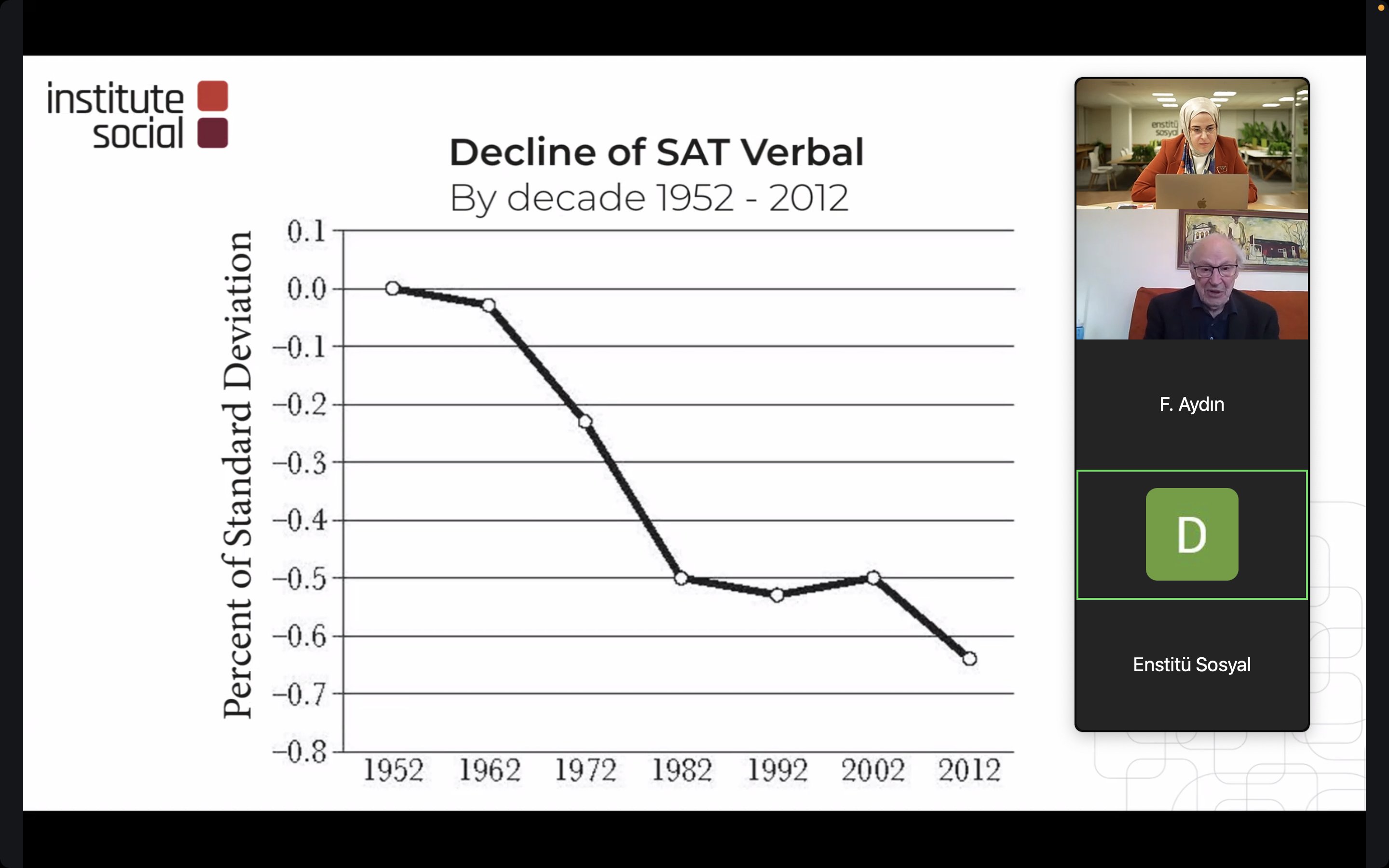
Hirsch’s Core Curriculum Proposal and Lessons for Artificial Intelligence
On December 5th, Institute Social hosted renowned education scholar Prof. E. D. Hirsch as part of its Global Reflections series. The online event, titled The Importance of “Shared Knowledge” in Education and in Speech, highlighted Hirsch’s insights into the critical role of shared knowledge in language comprehension, the significance of equitable approaches in education, and the limitations of artificial intelligence in understanding language. Hirsch also delivered thought-provoking commentary on how a robust core curriculum could shape the future of society.

In today’s world, language comprehension and literacy are not just essential for individual success but also for fostering social cohesion and cultural richness. E. D. Hirsch argues that effective use and understanding of language rely on shared knowledge between writers and readers. However, this critical dimension—implicit, topic-specific knowledge—is often overlooked in schools.
Hirsch proposes a rich and shared curriculum that provides students with a common foundation in essential subjects such as history, science, art, and civics. This curriculum aims to bring children from diverse backgrounds together with equal opportunities, respecting individual identities while promoting societal unity. Covering grades K-8, this core curriculum is designed to not only boost academic achievement but also prepare informed and engaged individuals for the modern world. History, geography, science and other subjects of shared knowledge should be taught in a strong context, not drowned in technicalities.
This is crucial because meaningful learning cannot take place without continuity in knowledge. Disadvantaged children, when provided with a robust curriculum and guided by skilled educators, have the potential to achieve parity with their peers from more advantaged regions. The key to reducing educational inequalities lies in establishing a shared knowledge infrastructure accessible to all.
In this context, the limitations of artificial intelligence in understanding language offer important lessons. While AI can grasp the surface expressions of language, it struggles to comprehend deeper meanings, context, and emotional nuances. This is because it lacks uniquely human traits such as empathy and shared intentionality. Humans, through these abilities, forge connections and communicate effectively. For AI, these capabilities remain an elusive goal.
Hirsch’s presentation underscores the need to restructure education systems and highlights the essential roles of empathy, context, and shared knowledge in language and communication. A knowledge-based education can lay the foundation not only for individual academic success but also for strengthening social bonds and creating a more cohesive society.
For more information, you can watch our video.
